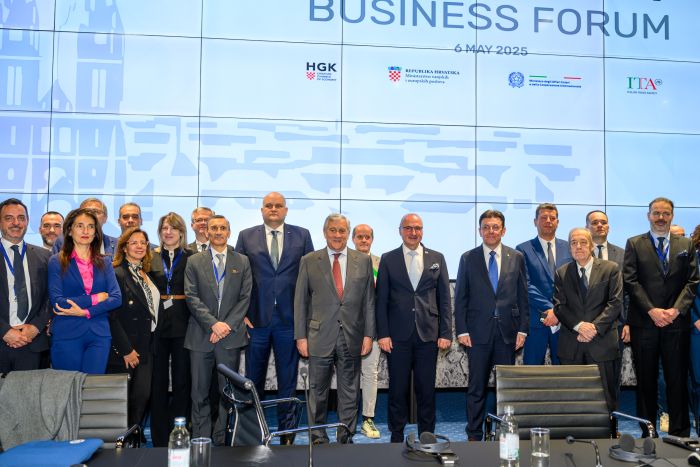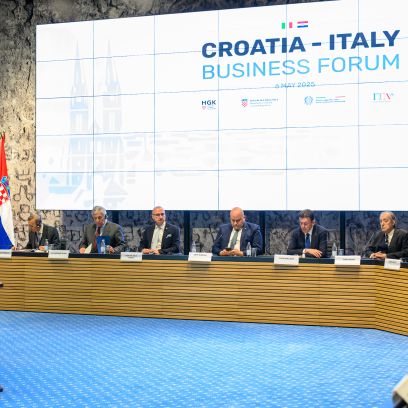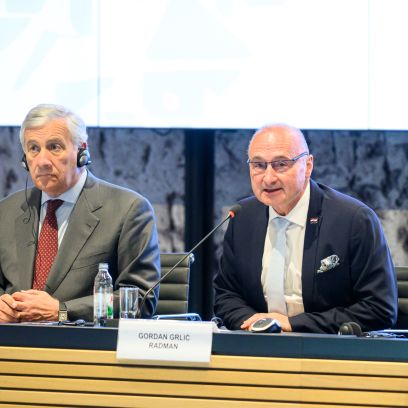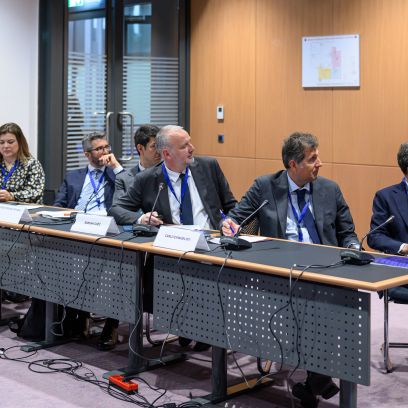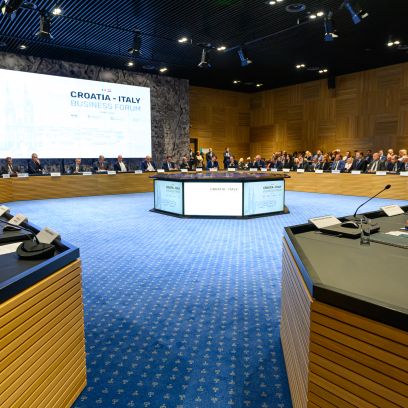The CEI - Executive Secretariat took part in the Italy-Croatia Business Forum held in Zagreb, on 6 May 2025 attended by Italian Minister of Foreign Affairs and International Cooperation Antonio Tajani; Croatian Minister of Economy Ante Šušnjar and Croatian Minister of Foreign and European Affairs Gordan Grlić-Radman.
In his opening remarks, Minister Antonio Tajani recalled the importance of the fruitful cooperation between Italy and Croatia both for bilateral relations and for strategic partnership for addressing current international challenges, mentioning the relevance of positive collaboration of the two countries in several sectors (tourism, Industry and commerce). He was echoed by his counterparts.
In this setting Tajani also emphasised the importance of promoting efficient connections in the region. In this regard he underlined the central and strategic role of Zagreb within the Trieste – Belgrade rail corridor, an activity the CEI is strongly supporting.
The event served as a key opportunity to further strengthen the economic partnership between Italy and Croatia and explore new opportunities for cooperation in the Adriatic-Ionian region.
The opening and plenary sessions on “Business Opportunities in Italy and Croatia” and “Financial Instruments for Internationalisation,” were followed by three thematic panels – energy transition, infrastructure and digitalisation, and industrial cooperation. These sessions highlighted the strategic importance of the region in the broader European context and emphasised the synergies between the business sector and institutional stakeholders.
The CEI represented by Project Manager Paolo Dileno, highlighted the value of multilateral cooperation and the essential role of regional platforms such as the CEI in fostering and enhancing economic and political relations among its Member States.
Mr. Dileno presented the main findings of a recent study on rail connectivity along the Western Balkans–Eastern Mediterranean (WB-EM) core corridor section between Trieste and Belgrade. The study – promoted by the CEI in collaboration with the Friuli Venezia Giulia Region and Politecnico di Milano – focused on identifying infrastructural bottlenecks and interoperability issues that need to be addressed in order to ensure the efficient operation of rail services along the corridor.

